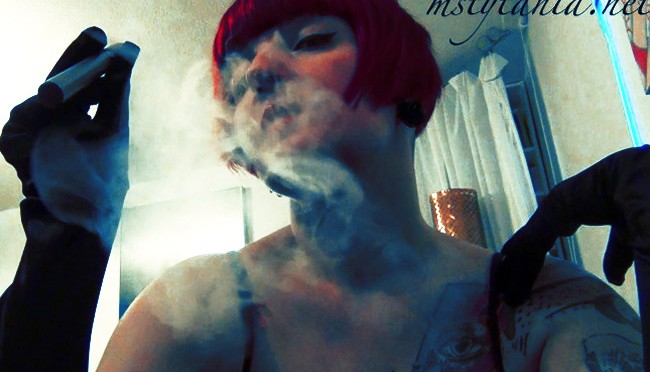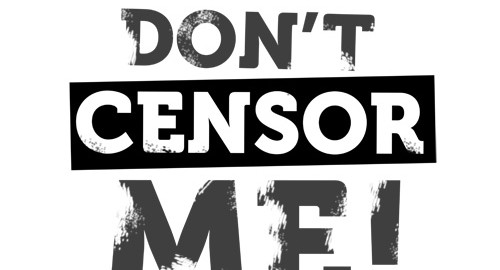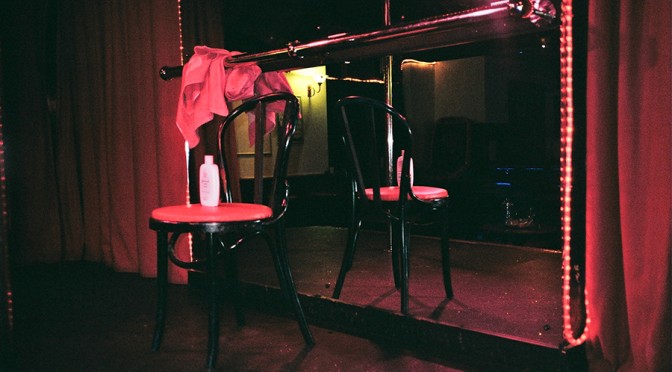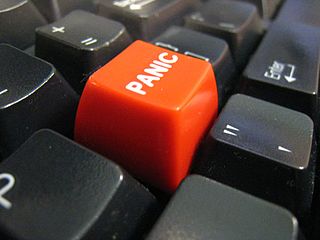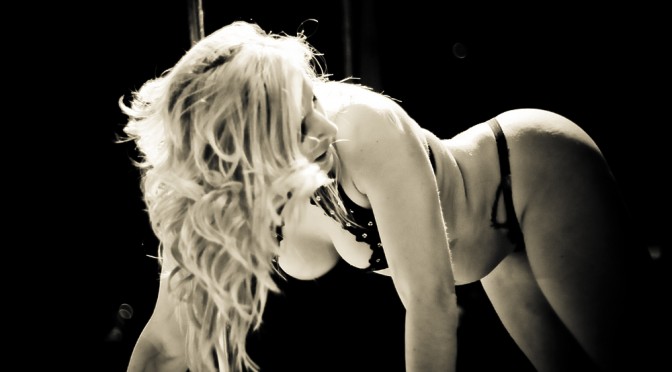My earliest memories of a sexual minority being unjustly targeted and criminalised come from the gay scene in the late 80s. Friends who came to London to dance their youth away and to go cottaging, who had never had an interest in politics, suddenly found themselves getting up in arms, angry and belligerent, when the Thatcher government’s notorious Clause 28 came into force.
Section 28 of the Local Government Act 1988 banned the promotion, and even the discussion in schools, of homosexuality as a valid form of family relationship. It used the predictable argument of protecting children from harm. But as is often the case, the legislators were twenty years behind the times and unprepared for an urban, unclosetted gay community that was proud of its nascent culture, articulate and ready for battle. According to the papers of the day, lesbians abseiled into the House of Lords; gay activists crashed into the BBC Studios and highjacked the news. It was claimed that:
“putting Clause 28 through parliament was one of the greatest promotions of homosexuality we have ever seen.”
Boy George, then demonised on the tabloids as a heroin-fuelled deviant and has-been, released No Clause 28, a single that helped put this legislation in the spotlight. Young people of all sexualities danced to the revolution, presenting gay culture as a fun and creative force, in opposition to their dull, archaic detractors. It was like being tut-tutted by your grandad, only it was real legislation. British gays’ pride in their cult of pleasure whilst denouncing prejudice, was a masterstroke that has paid off ever since. Perhaps the best lesson that the gay movement has taught future activists is: carry on, fiercely, and have fun while doing it. Something that was instinctively followed when independent porn producers, sex workers, groups from the thriving BDSM london scene and their allies, demonstrated in Parliament Square on December 12th of this year.
When the AVMS Regulations came into force two weeks earlier, on December 1st, 2014, it had a similar electrifying effect to Clause 28, mobilising individuals and groups that until then, had had very little interest in politics. Independent fetish porn producers were directly affected by banning the representation of sexual activities that appear regularly, safely and consensually in our work, as were women, LGBT and queer people, and the porn that they make. It felt as if those who wrote this legislation had no knowledge, or rather, no acknowledgement, of any sex that deviates from a narrow, normative, heterosexual, procreative model. It’s no wonder that the deviants came out in force, once again uncloseted, angry and political. Women and gay/queer people know a lot about being demonised for using their bodies for purposes that are neither procreative nor to make a man hard.
The protest was a defiant celebration of, and public pride in, sexual difference. You could feel the stirrings of a nascent movement that was not going to be bullied by shame. Staging a mass facesitting was arguably its master stroke, but was criticised both by insiders and outsiders, for displaying a sex act to a non-consenting public (of mostly London tourists). Personally, I wasn’t too concerned about this. One of the many contributions of modern gay culture to the world is the legitimisation of public sex, challenging bourgeois myths of sex as a fiercely private affair. Plus, this was London in December, and the protesters were wearing three layers of clothing. Unless you were the incarnation of Mary Whitehouse, Sodom and Gomorrah it wasn’t.
But I am still a bit of a natural born killjoy, so my fear, which I vocalised in some interviews, was at first that the spectacle of a mass facesitting would give the media the perfect excuse to exploit the banal and ignore the real purpose of the protest: never underestimate the media circus’ power to trivialise the most serious subjects.
Fortunately for the protesters, the potential for farce had long before been appropriated by the AVMS Regulations, also fabulously monikered Female Ejaculation Ban. Its ridiculousness said more about our rulers, than about those perverts in Parliament Square. There was enough potential for juicy jokes on the state’s weird obsession with spanking and squirting to fill many newspaper pages. Did I just type weird obsession? Surely, I meant predictable. Anyway, I’m digressing.
The AVMS Regulations politicised and united groups that, as I have already mentioned, have not, until now, been known for their interest in politics: namely the porn industry and the fetish scene (sex workers, on the other hand, being traditionally marginalised, have a long history of political activism). Most of the adult industry follows a neoliberal, capitalist model that worships financial gain at any cost, so the big studios aren’t going to come out in defence of the competition. The fetish scene, being very white, male and middle class, suffers from a short-sighted fetishisation of persecution. I have lost count of the many times London kinksters complain about not feeling “special”, in an increasingly tolerant culture. I hear you, you poor snowflake. These complaints can only come from people who have never suffered stigma of any kind.
But back to these freshly politicised sexual minorities, who clearly understand the dangers of discrimination and stigma: there are many similarities between the mobilising effect that the AVMS Regulations had in the independent porn producers and BDSM scene, and Clause 28 in the gay community. Neither gays nor women can enjoy their pleasures lawfully, it seems, without becoming a threat to society.
For years, Backlash has looked at the long history of the gay movement for models and references. They are, after all, 30 years ahead of us in terms of political activism. We also share a feminist perspective because sexual stigma is often blatantly gendered. Sexual discrimination, whether it’s against cottaging or against facesitting, is also pretty much the same: it hates anything that does not validate reproduction and a hierarchy that bows to male desire, one where the female is always at the bottom and subservient to it. Anything that doesn’t follow this narrative is, invariably, harmful to children and a the end of civilisation as we know it. Perhaps our unimaginative powers-that-be are taking facesitting and “being on top” too literally.
So yeah, gays, women and those unclassifiable weirdos, the queers: Backlash have defended many of them. Everything that we have encountered in court, at employment tribunals, in law, in the media, the gay movement fought against 30 years ago. When we look for ways to understand, then defend, all sorts of cases against sexual difference, we refer back to gay activism. We stand on the shoulders of giants. When faced with sexual discrimination, I often find myself wondering: what did the gays do before?
There is some hope that the AVMS Regulations will be repealed in the end, and that activism and protest will play a major part. One of the most positive effects of Clause 28 was that it had the exact opposite effect that it sought. Instead of silencing homosexuality, as it thought it would, by banning schools from even discussing it, it highlighted institutional homophobia and a shift in society towards tolerance of sexual minorities. It did indeed catapult gay culture into the mainstream, and found support from many quarters, as well as from the general public, who felt no gay threat, but rather, sympathy, for a persecuted minority.
So what can we do, while this law is still in force, with all its arbitrary, misogynistic, frankly farcical prohibitions? Because farcical or not, it still has the potential to make many people’s lives a living hell. Clause 28 wasn’t repealed until 2003, by the Blair government. Based on cases defended by Backlash, I have seen that these laws are often used to kick people who are already down. The AVMS Regulations, like ATVOD before, will force many independent porn studios that are a model of resilience in the financial crisis, to close down: even though nobody (to our knowledge) has died after a severe facesitting session.
And what to do next? I get asked that a lot. Carry on sitting on people’s faces on your videos and supporting your independent studios by buying from them. Back in 1988, gay people carried on being gay, doing what gay people do, and becoming an inspiring role model for an increasingly diverse society. Porn, and specifically, independently produced porn, creates cultural artefacts. Contrary to the opinion of our detractors, and of sexually awkward legislators, porn doesn’t exist in a criminal demi-monde or in a cultural vacuum. It’s a product of its time that talks about the world it comes from. Niche porn offers an education into the less discussed forms of sexual expression. It’s worth protesting, disobeying, fighting for our right to a more diverse porn. Thank to gay activism, we have a much richer world, with more ways of living and connecting. We are following in their footsteps.
I keep writing that I saw the beginning of a nascent movement after December 1st, because so many people united against persecution of diversity. So much was written and said. It started a fascinating debate about the role of porn in our culture, as I’ve already mentioned; but also, about misogyny, sexual autonomy, art and porn, porn and feminism, the complexity of porn and those who make it… And last but no least, it fuelled a debate about state censorship. Much more needs to be said, written and shouted. I hope that, after the inevitable lull of Christmas, the anger will still be there.
Last month, many must have realised that they are not alone and that they are not helpless deviants living on the fringes of society. It’s been immensely satisfying to connect with other porn producers who, like me, consider our work legitimate, ethical, creative, relevant. Something that deserves to be respected as a valid profession. Like the gay movement 30 years ago, we all agreed that we were not going to tolerate being criminalised and silenced by outmoded legislators. We were not going to accept sexual stigma as an inevitable result of running a discredited business. And we were fed up with being misrepresented as pimps, as coerced women, as unsophisticated, easily bullied smut-peddlers. The so-called Porn Ban was an unprecedented call to arms for all those who work in the less corporate side of the adult industry but also, for those who enjoy watching and exploring the less trodden paths of human sexuality. So yeah, things have perhaps to get worse before they get better and maybe ATVOD or the AVMS Regulations, much as we resent and oppose them, might be the catalyser. Everybody needs a kick in the arse sometimes, to feel the anger.
